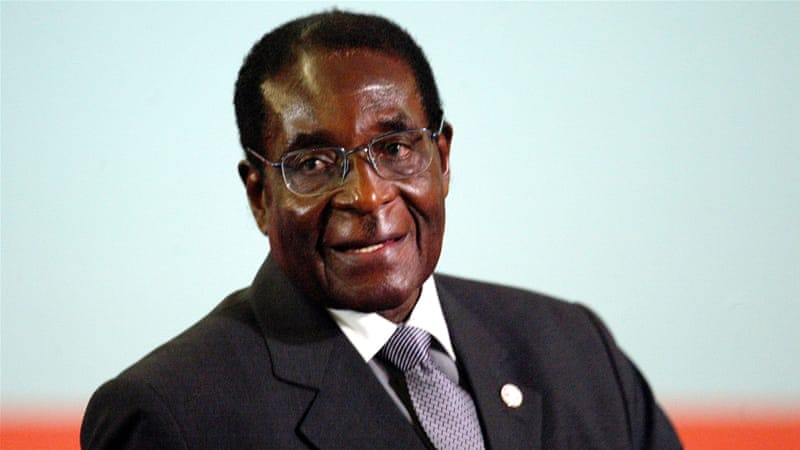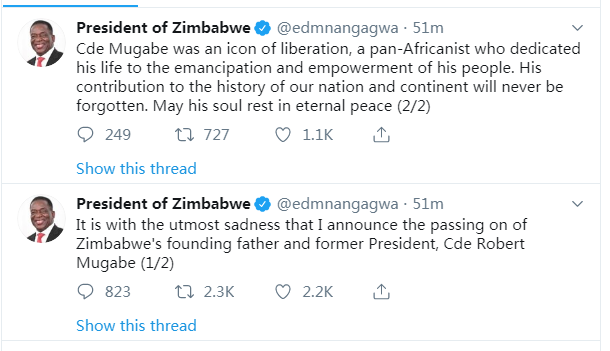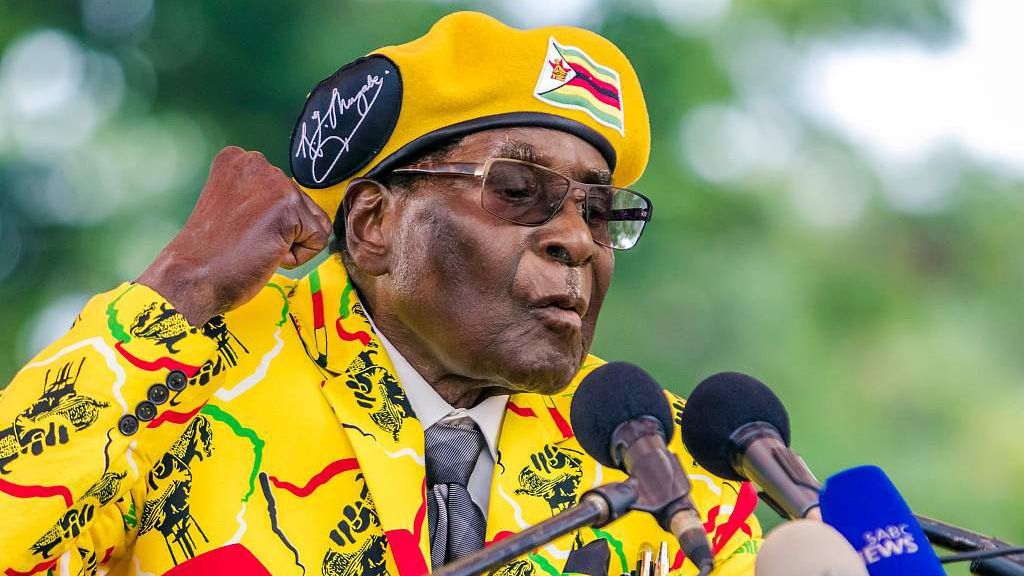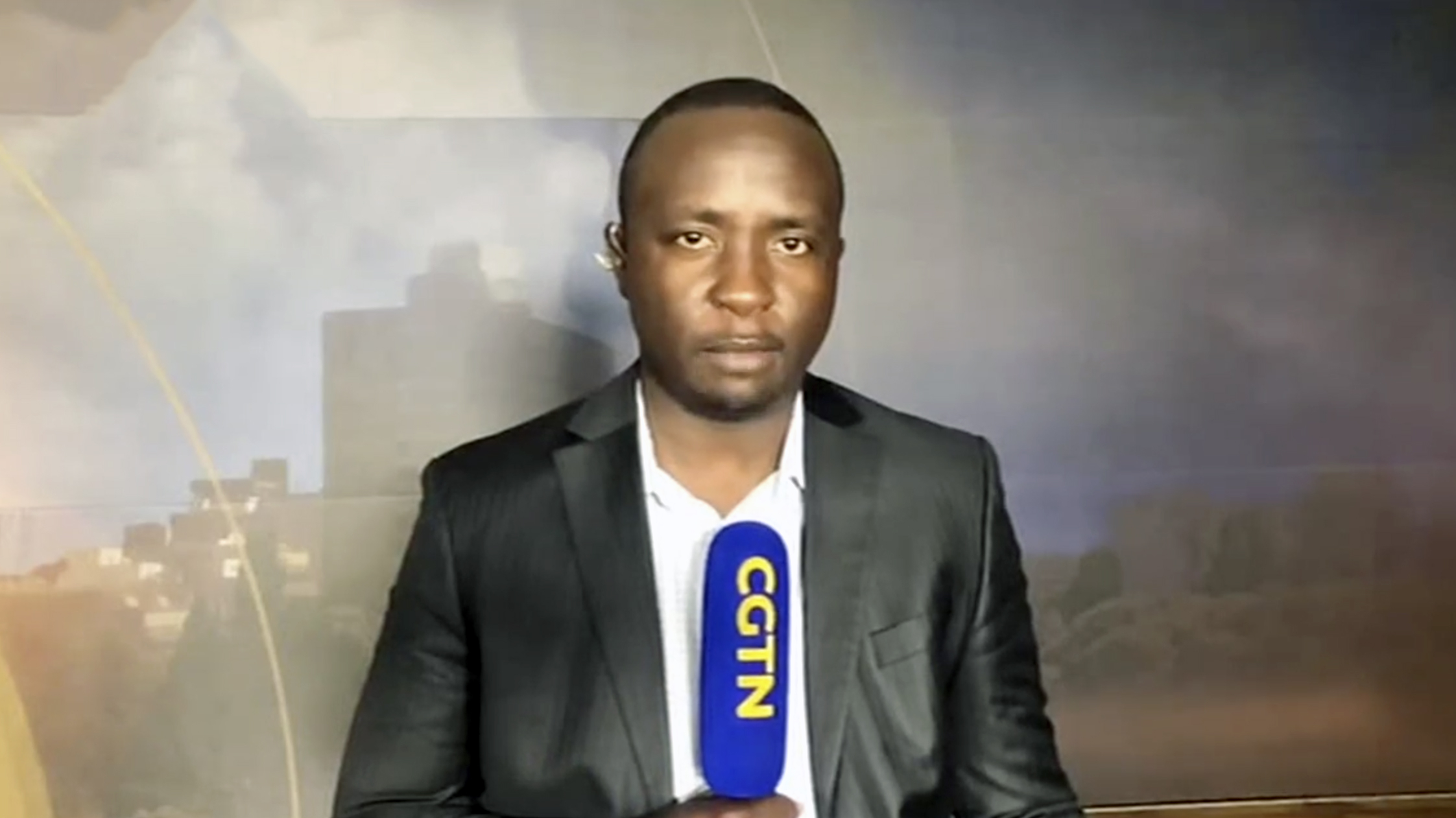

Former Zimbabwean president Robert Mugabe has died at age 95, multiple sources reported on Friday. It is believed Mugabe passed away after battling health problems. He has been in hospital in Singapore since April.
Incumbent Zimbabwean President Emmerson Mnangagwa confirmed Mugabe's death while expressing condolences on Twitter.
"Mugabe was an icon of liberation, a pan-Africanist who dedicated his life to the emancipation and empowerment of his people. His contribution to the history of our nation and continent will never be forgotten," Mnangagwa tweeted.

Screenshot from Mnangagwa's Twitter post
China expresses condolences
China expressed deep condolences over the passing of Mugabe, lauding him as an "outstanding leader of the national liberation movement and statesman" of the country.
When asked for comment, Chinese Foreign Ministry spokesperson Geng Shuang said that Mugabe had lived his life firmly committed to safeguarding national sovereignty and independence, and opposing foreign interference. He actively promoted friendly cooperation between China and Zimbabwe as well as that between China and Africa as a whole, Geng added he was an "outstanding national liberation movement leader and politician."
"We'd like to express deep condolences over Mugabe's passing, and convey sincere sympathy to Zimbabwe's government, its people, as well as his family members," the spokesperson said at a press briefing.

Africa's longest-serving leader
Born in 1924, Mugabe was a key character in the fight against white rule in Africa's liberation era and one of the continent's longest-serving leaders.
After the country's independence from Britain in 1980, Mugabe became the first prime minister and later president of Zimbabwe. He introduced universal education and a robust social program that benefited previously marginalized communities, while international aid organizations poured in millions in support of the fledgling government.
However, relations with Western powers started getting frosty over perceived misgovernance issues and alleged violations of human rights in the 1990s, and eventually broke down in 2000 when the government expropriated land from white commercial farmers and re-allocated it to formerly landless blacks.
This led to serious economic decline with Mugabe attributing most of the failures to economic sanctions imposed on him by the European Union, the United States and their Western allies since the early 2000s over the land issue.
The country's economy collapsed in those dark years, staging a recovery only after regional leaders forced Mugabe to form a government of national unity in 2008.
Mugabe was forced to quit in November 2017 after the military took over power, ending his 37-year hold on power.

Ties with China
Mugabe has visited China numerous times, with the latest one two years ago.
During Mugabe's state visit to China in August 2014, the two countries agreed to be good friends, good partners and good brothers that treat each other as equals, support each other, and pursue win-win cooperation and common development.
In December 2015, Chinese President Xi Jinping paid state visits to Zimbabwe and South Africa and co-chaired a summit of the Forum on China-Africa Cooperation (FOCAC) in Johannesburg, where a package of programs aimed at strengthening China-Africa cooperation and supporting Africa's development was adopted.
"China's friendly policy toward Zimbabwe will not change," said Chinese Foreign Ministry spokesperson Geng Shuang several days after Mugabe's resignation.

Copyright © 2018 CGTN. Beijing ICP prepared NO.16065310-3
Copyright © 2018 CGTN. Beijing ICP prepared NO.16065310-3